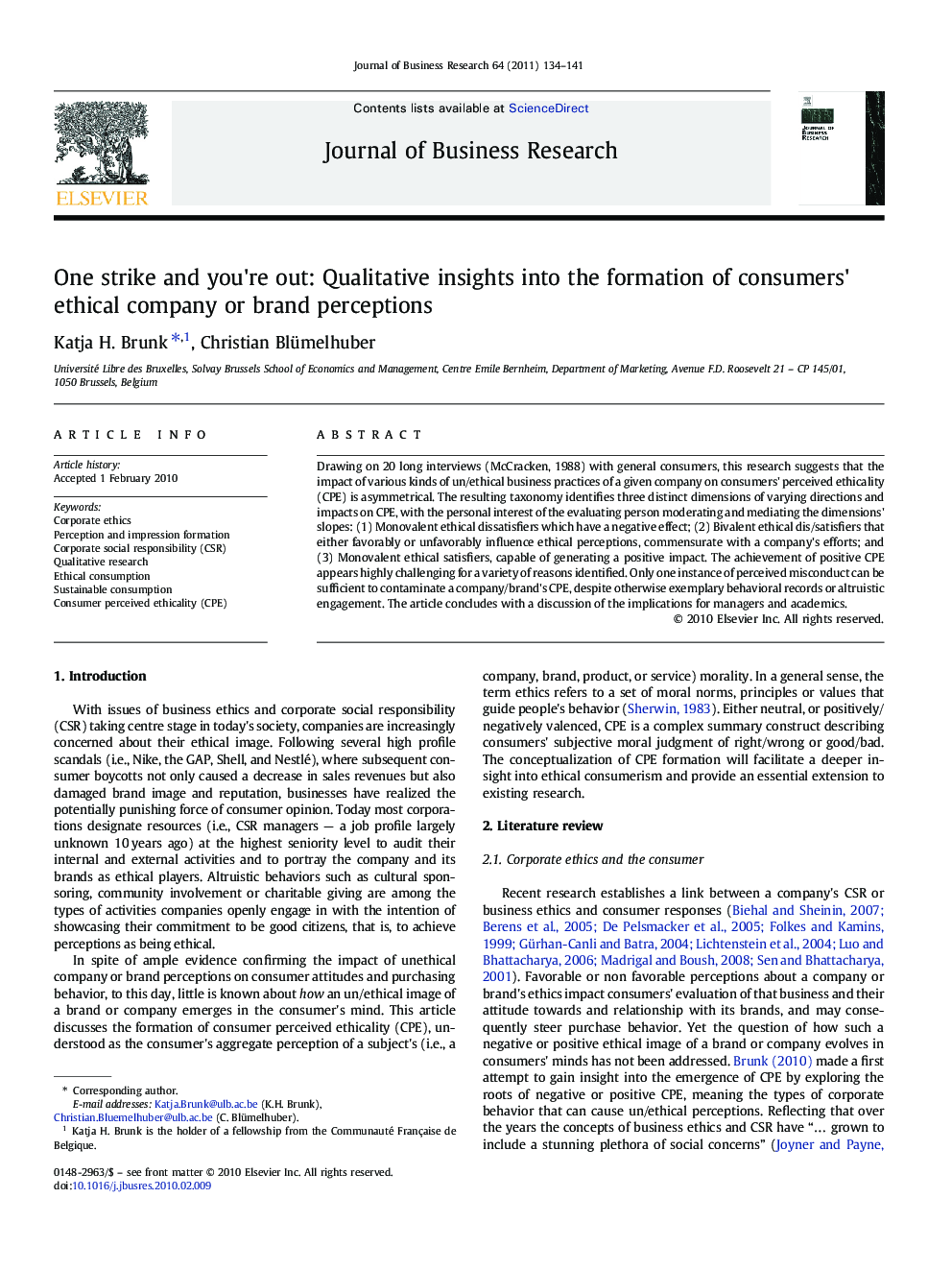| Article ID | Journal | Published Year | Pages | File Type |
|---|---|---|---|---|
| 1018498 | Journal of Business Research | 2011 | 8 Pages |
Drawing on 20 long interviews (McCracken, 1988) with general consumers, this research suggests that the impact of various kinds of un/ethical business practices of a given company on consumers' perceived ethicality (CPE) is asymmetrical. The resulting taxonomy identifies three distinct dimensions of varying directions and impacts on CPE, with the personal interest of the evaluating person moderating and mediating the dimensions' slopes: (1) Monovalent ethical dissatisfiers which have a negative effect; (2) Bivalent ethical dis/satisfiers that either favorably or unfavorably influence ethical perceptions, commensurate with a company's efforts; and (3) Monovalent ethical satisfiers, capable of generating a positive impact. The achievement of positive CPE appears highly challenging for a variety of reasons identified. Only one instance of perceived misconduct can be sufficient to contaminate a company/brand's CPE, despite otherwise exemplary behavioral records or altruistic engagement. The article concludes with a discussion of the implications for managers and academics.
